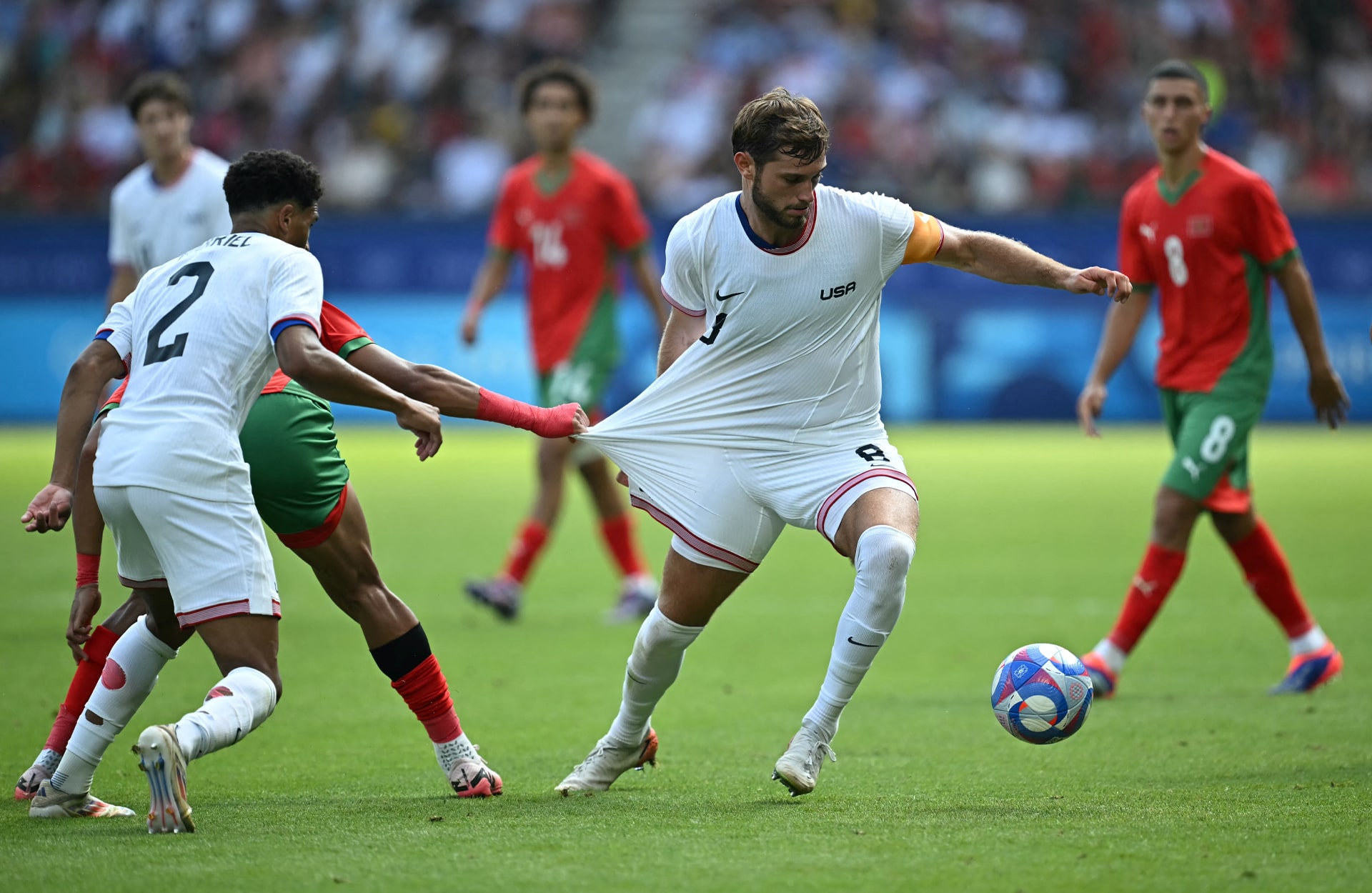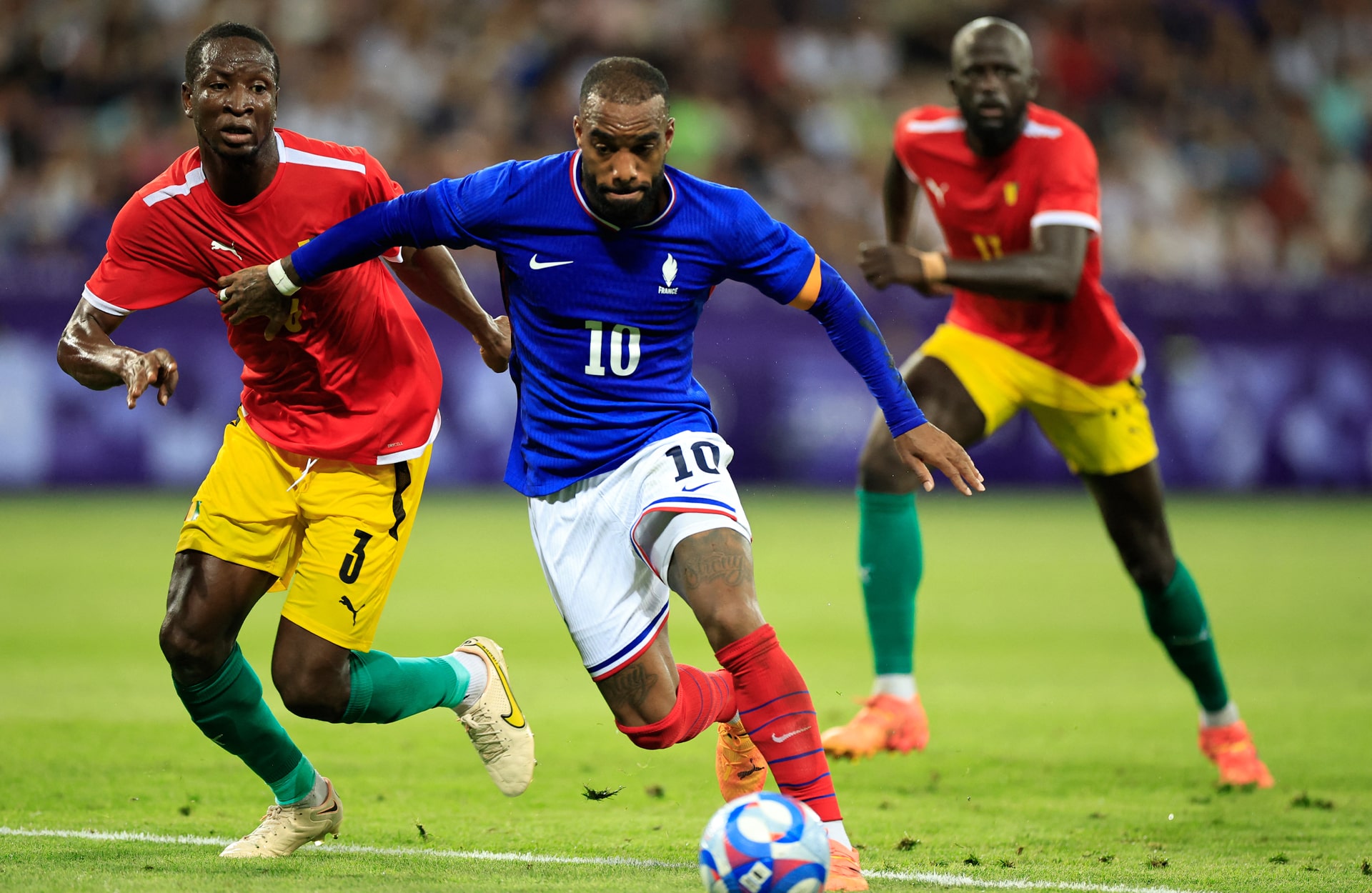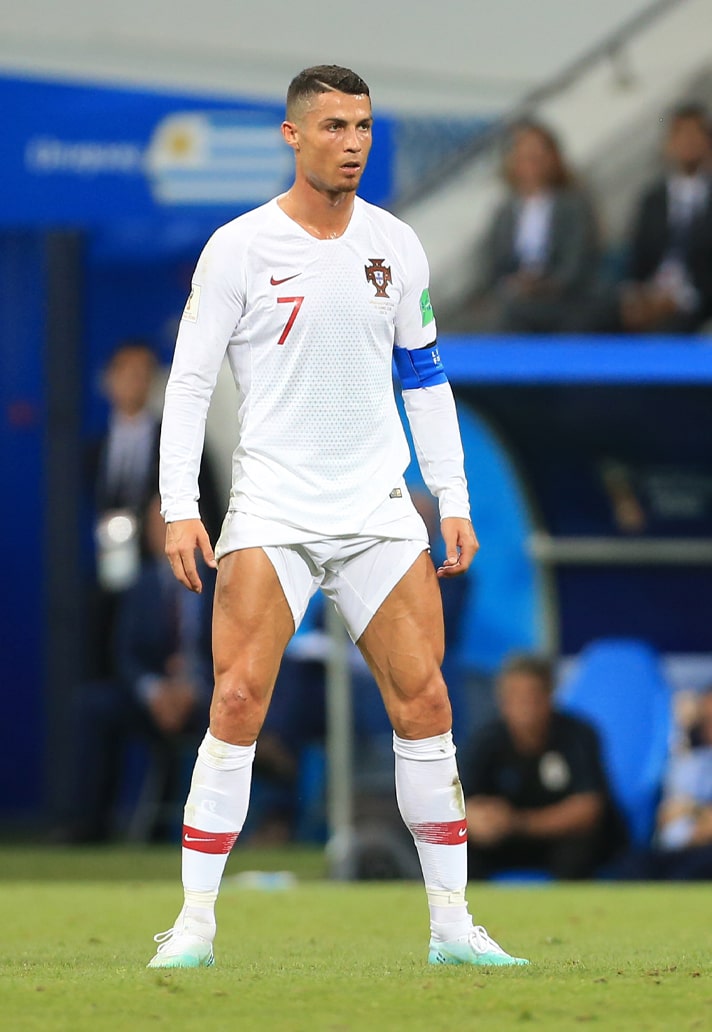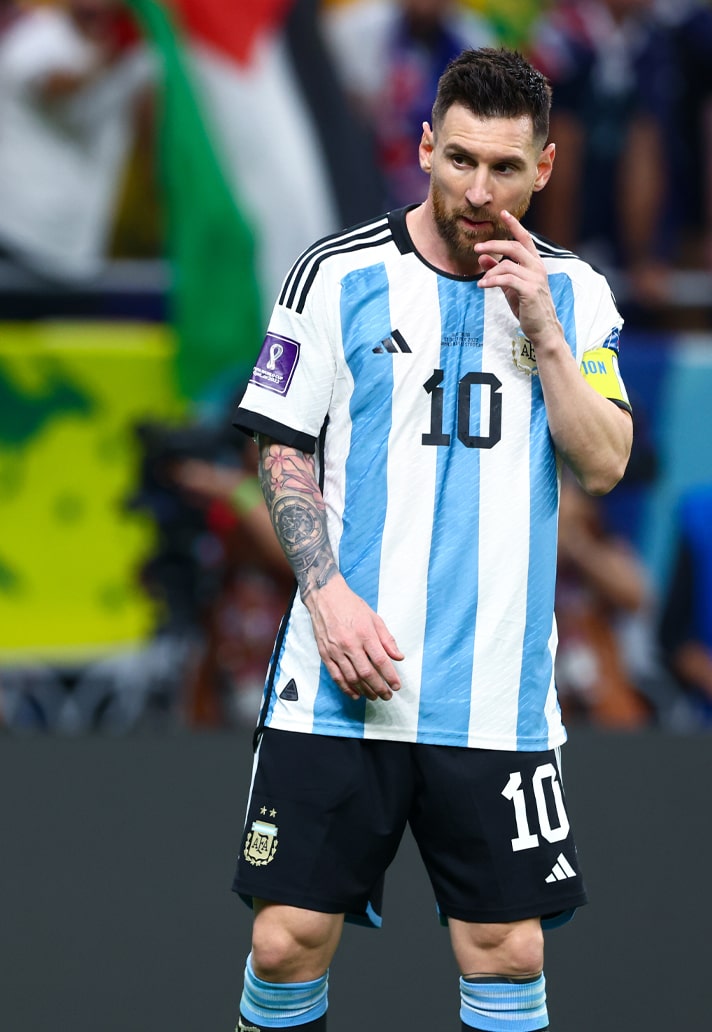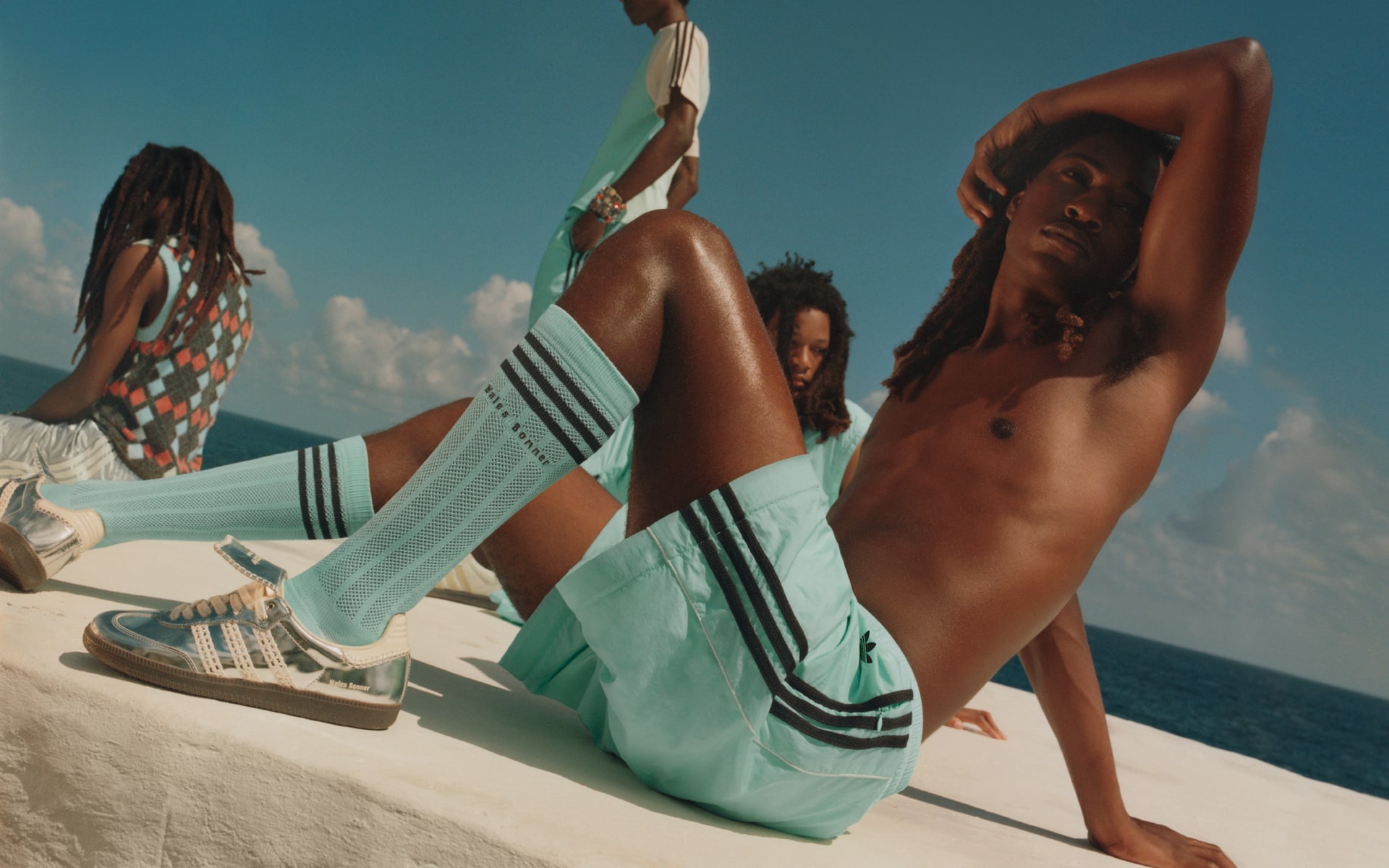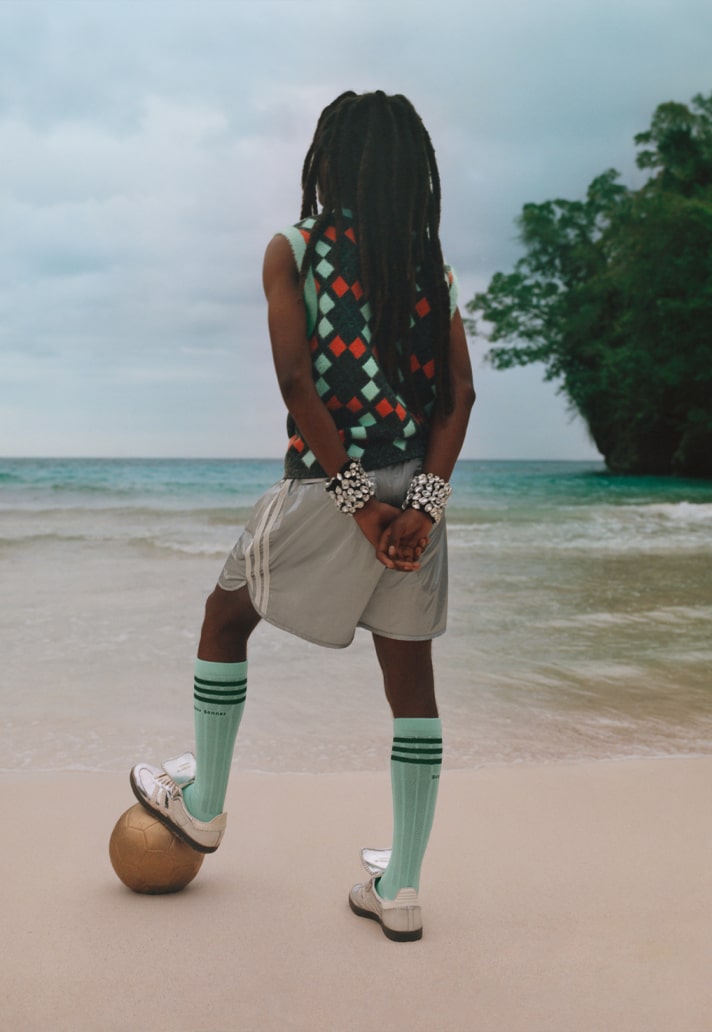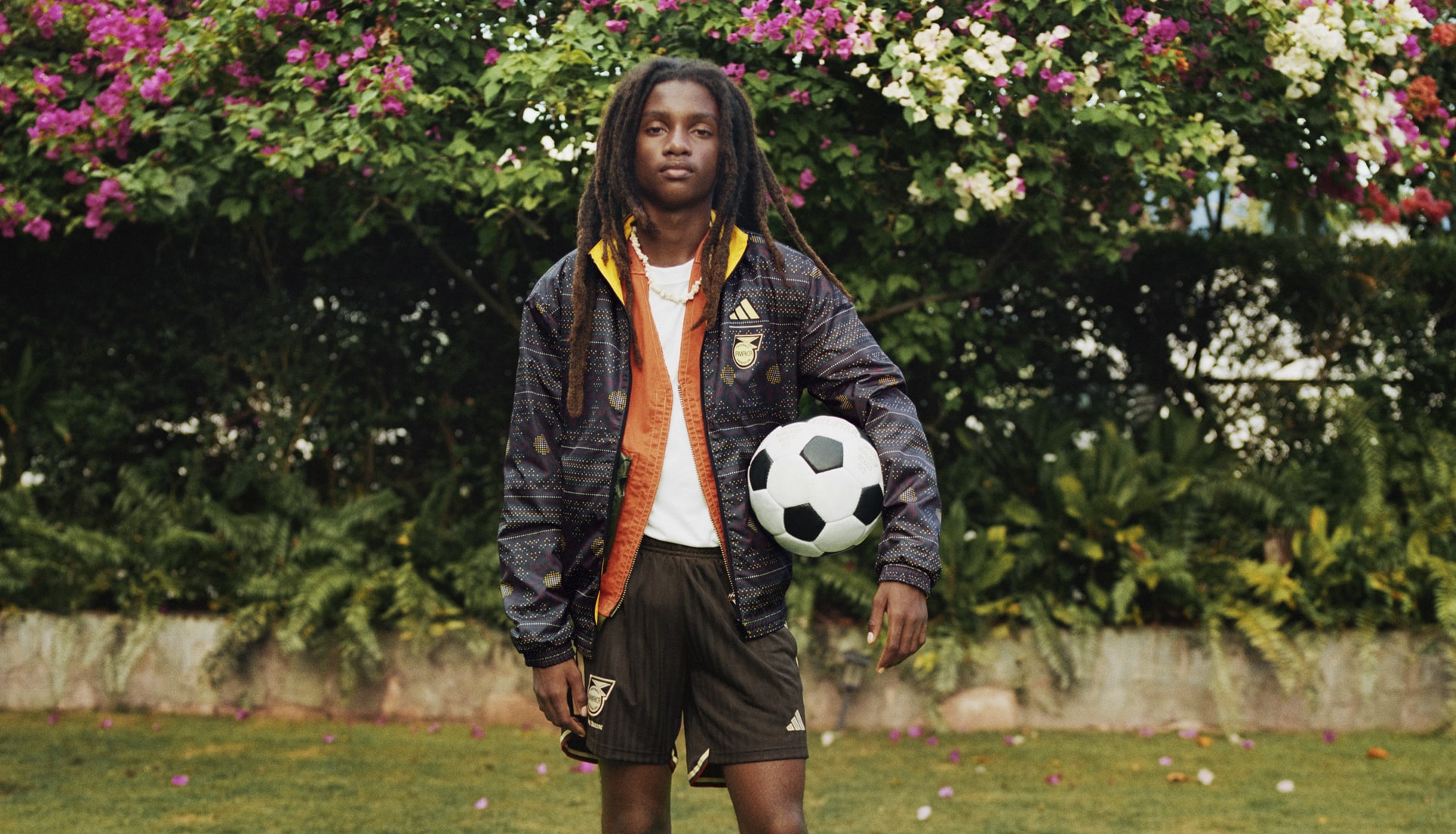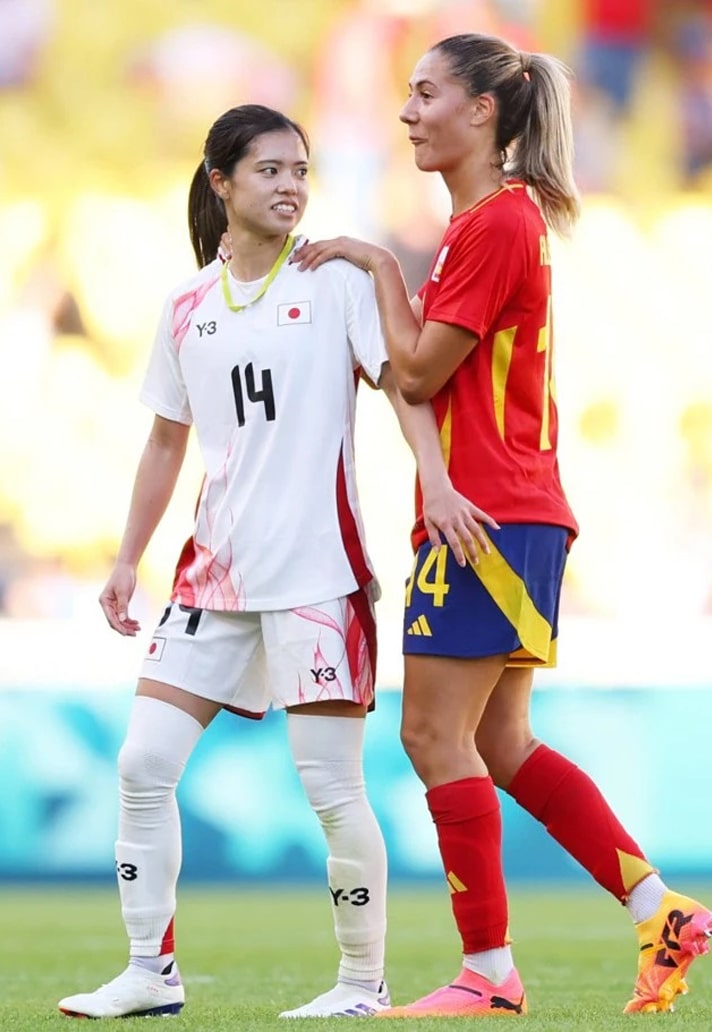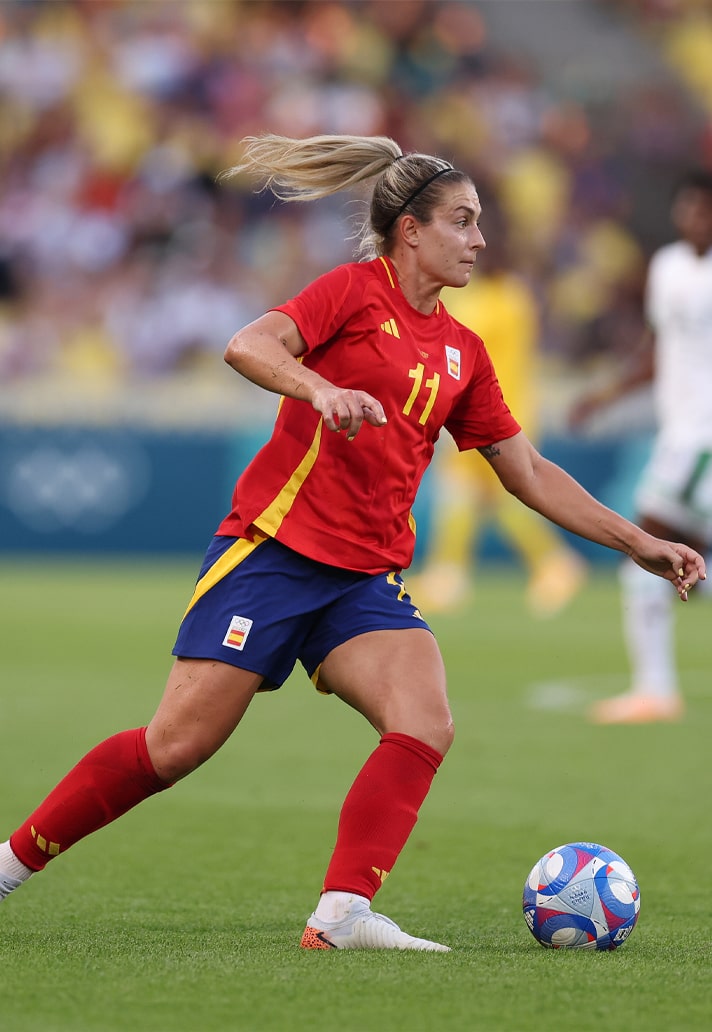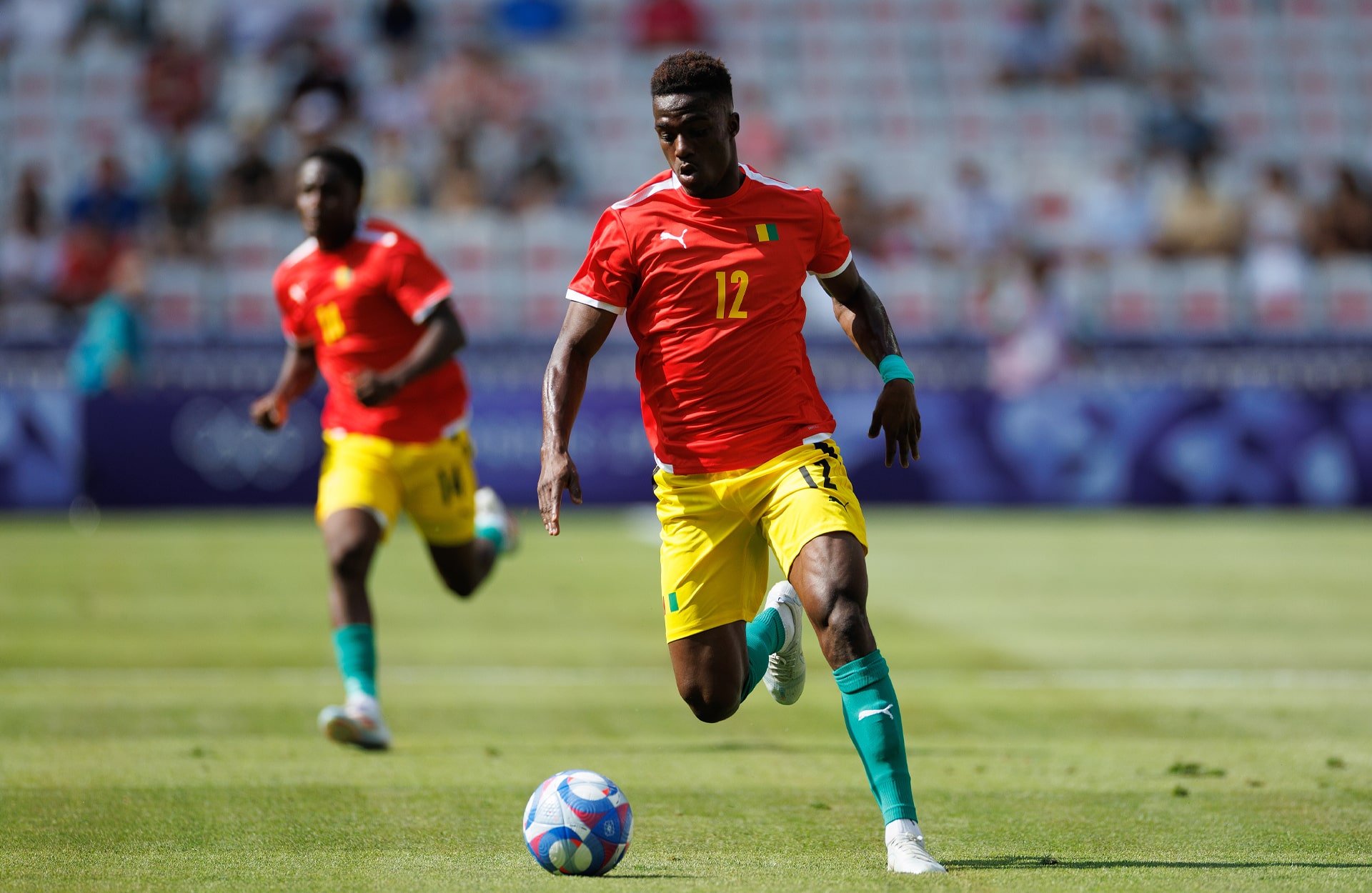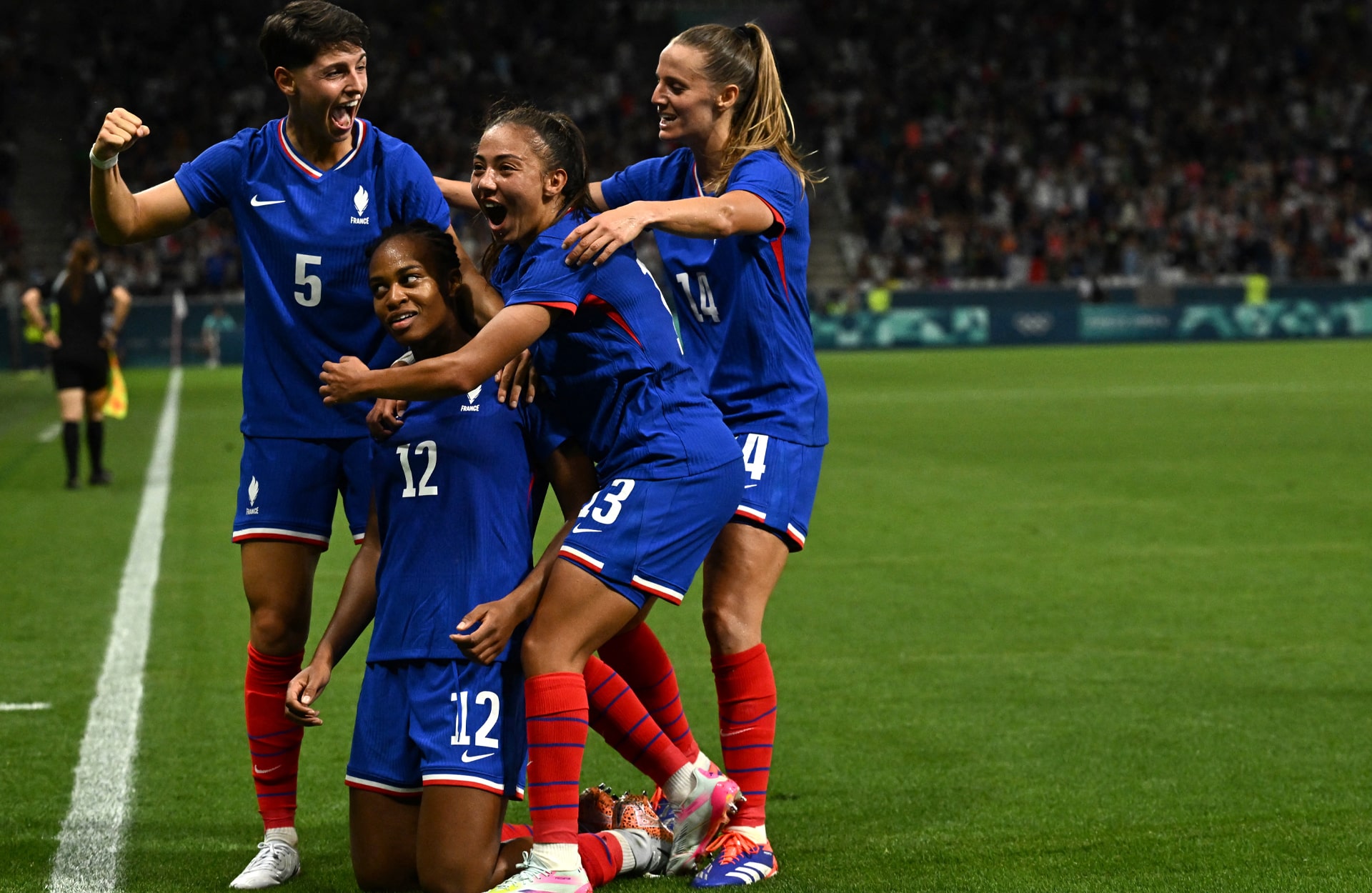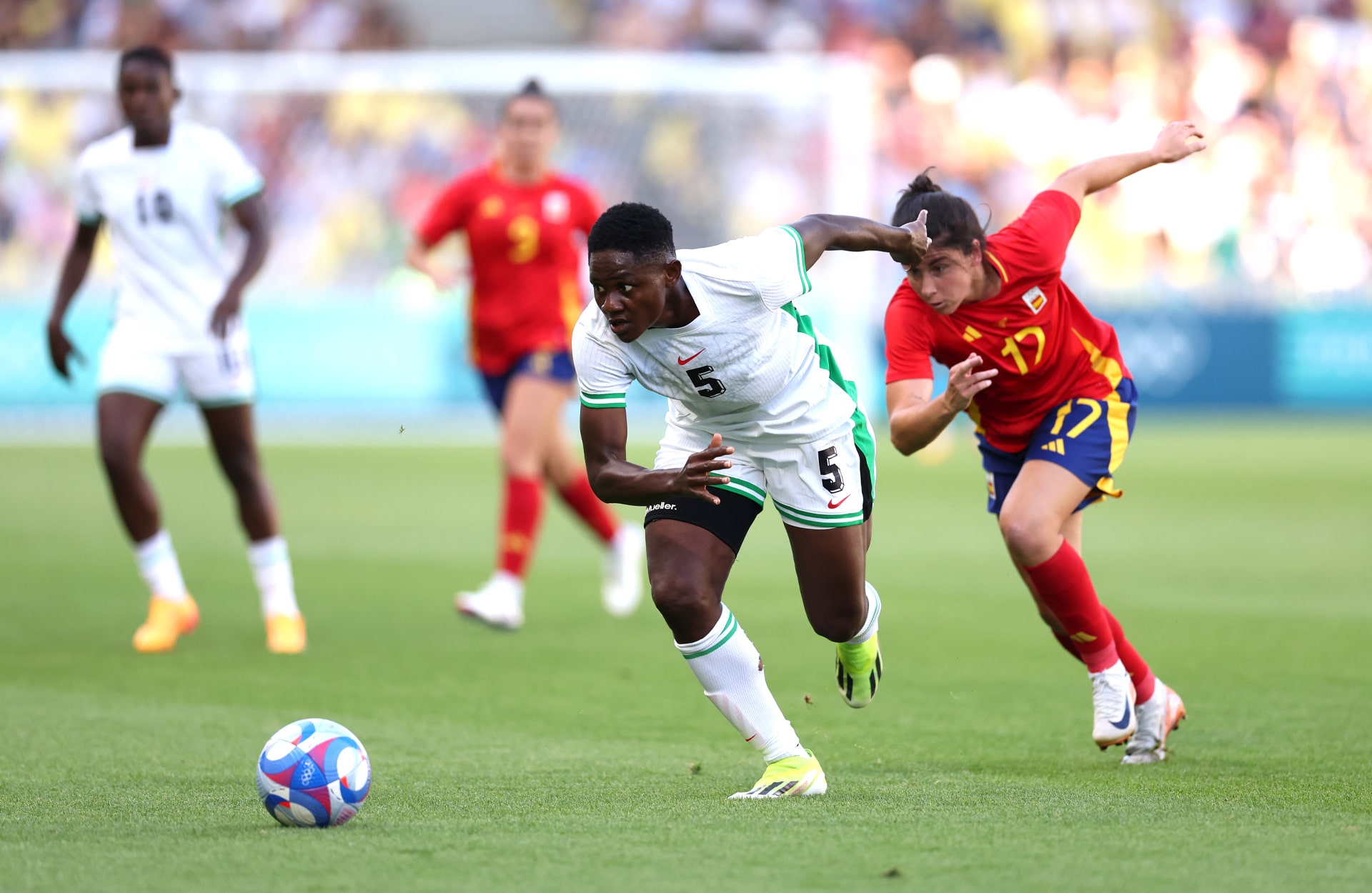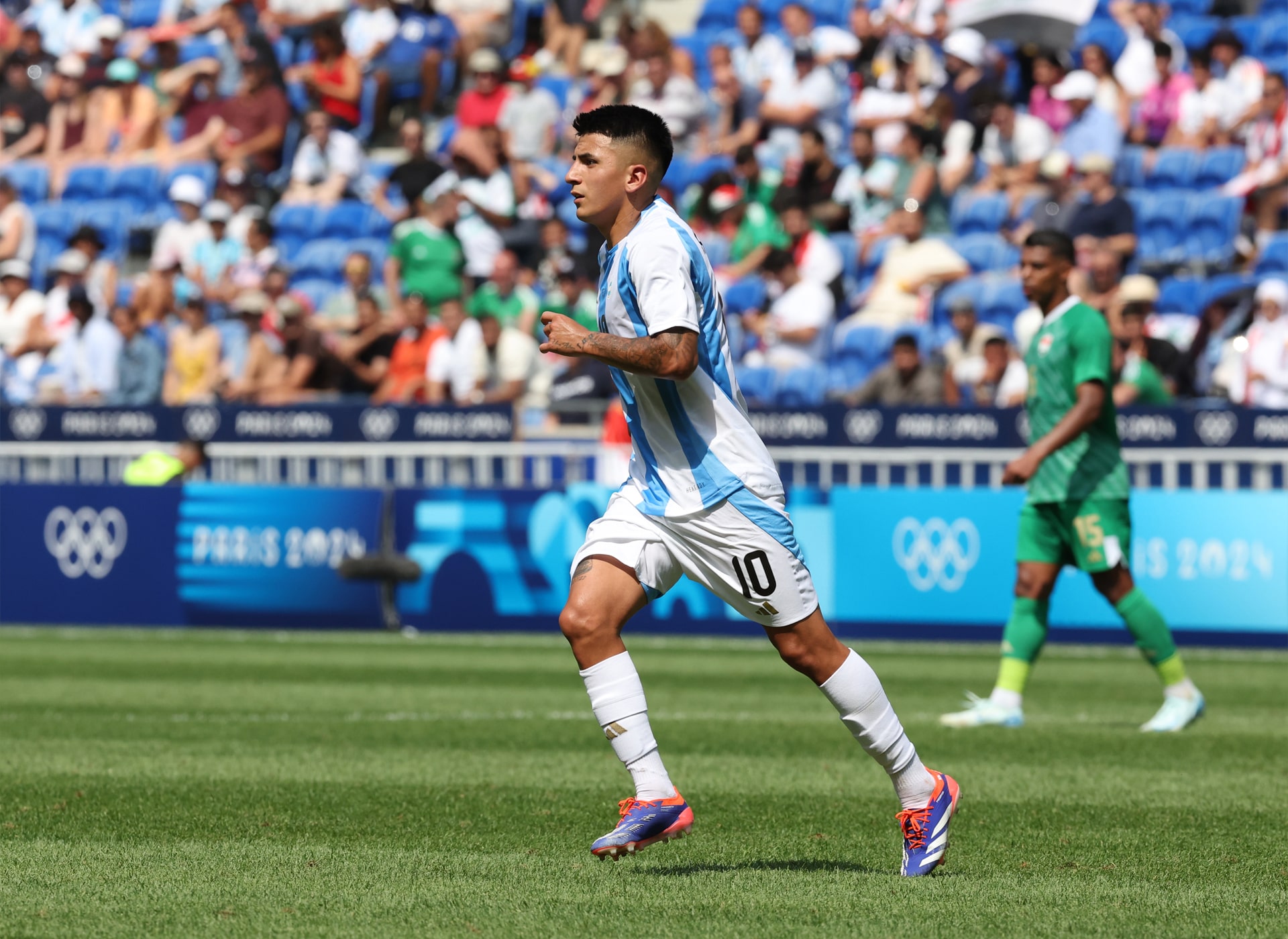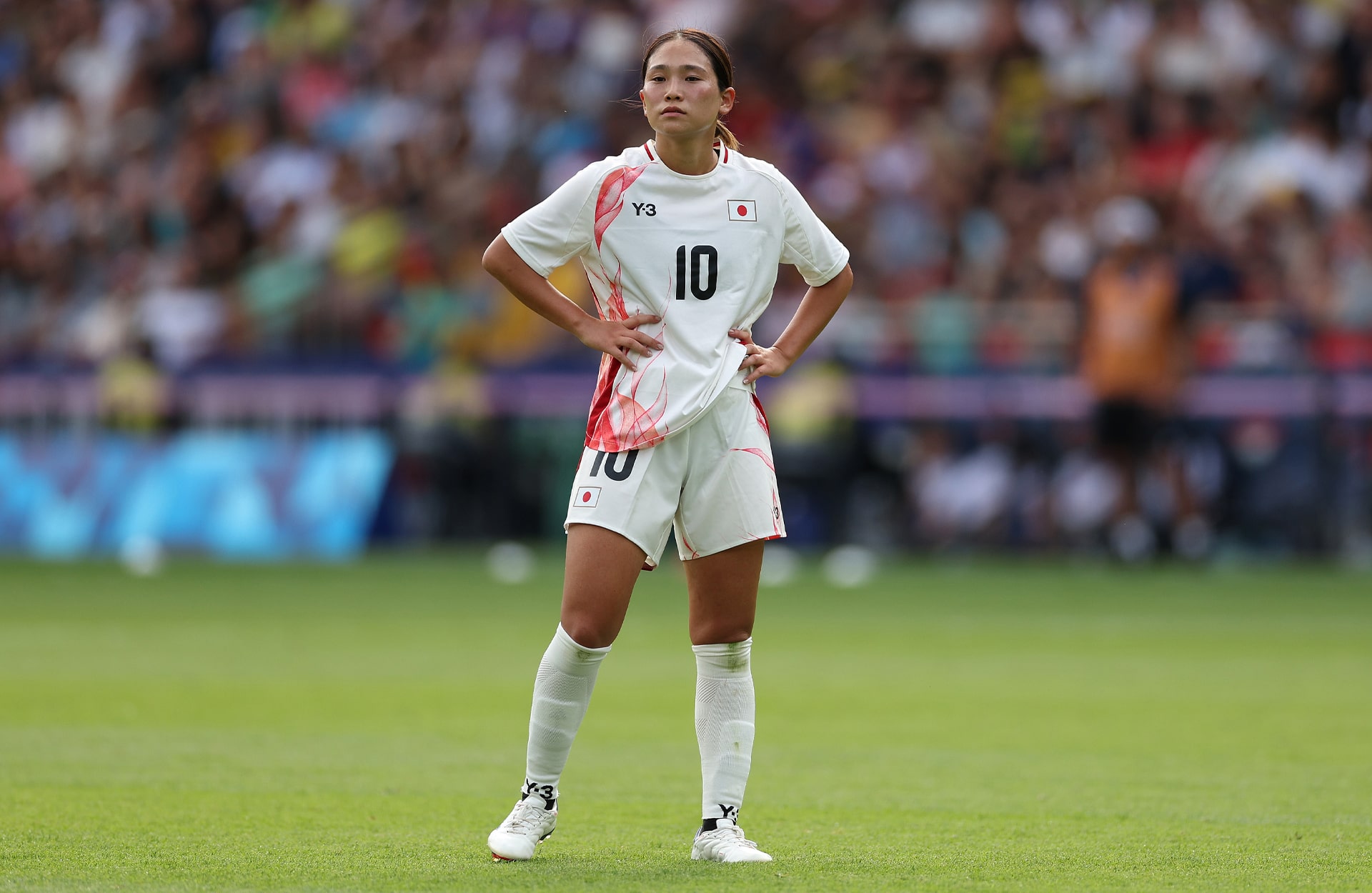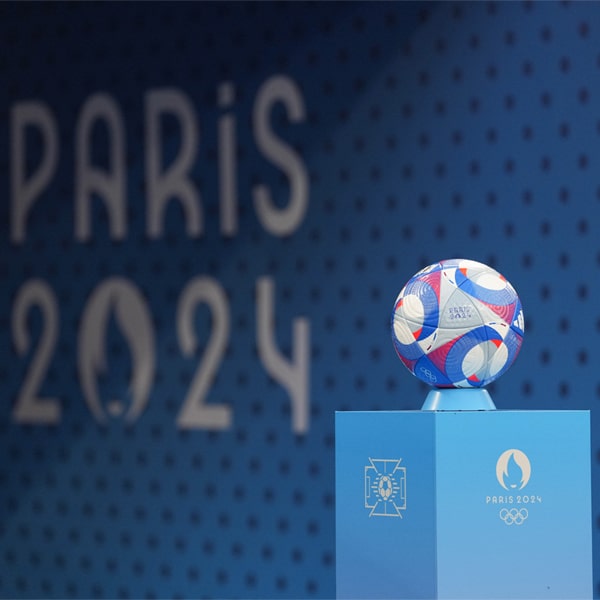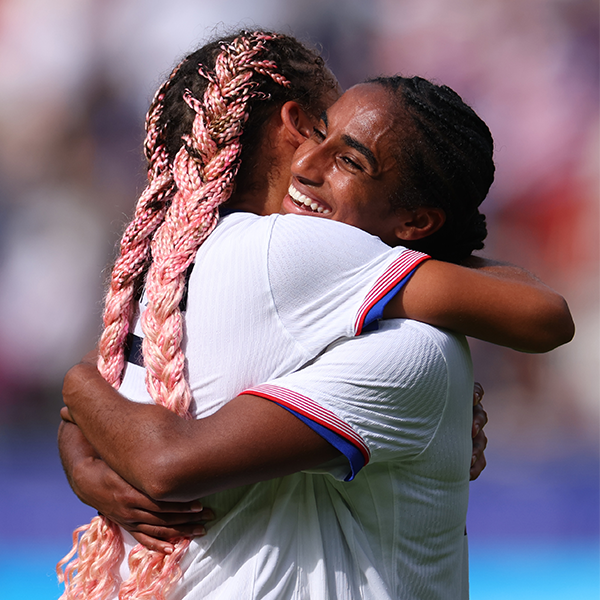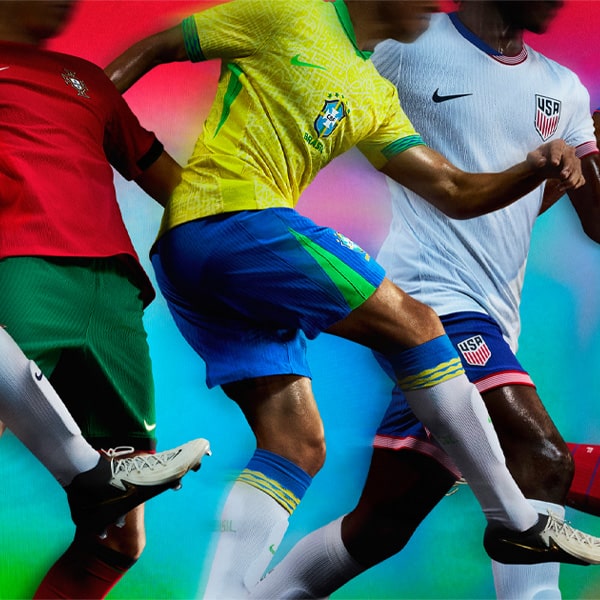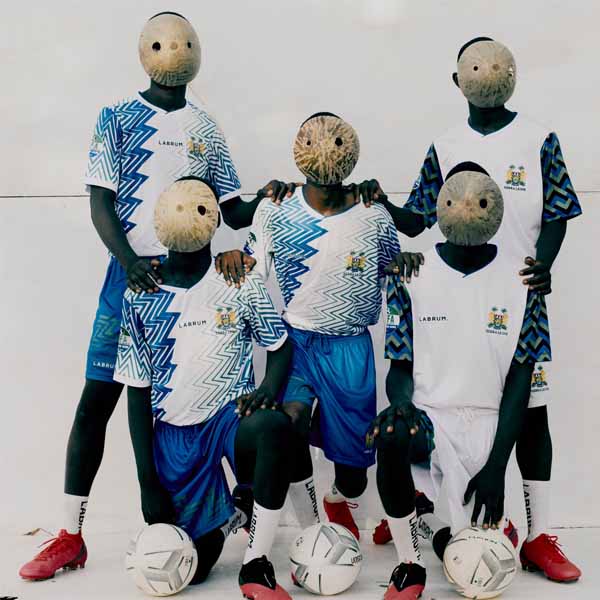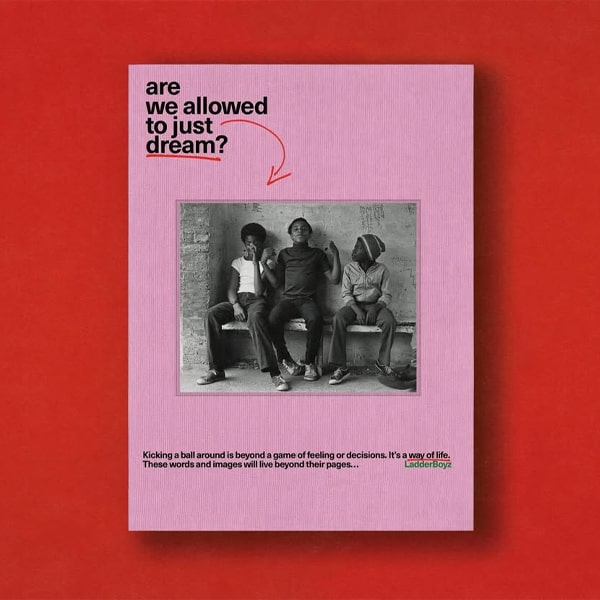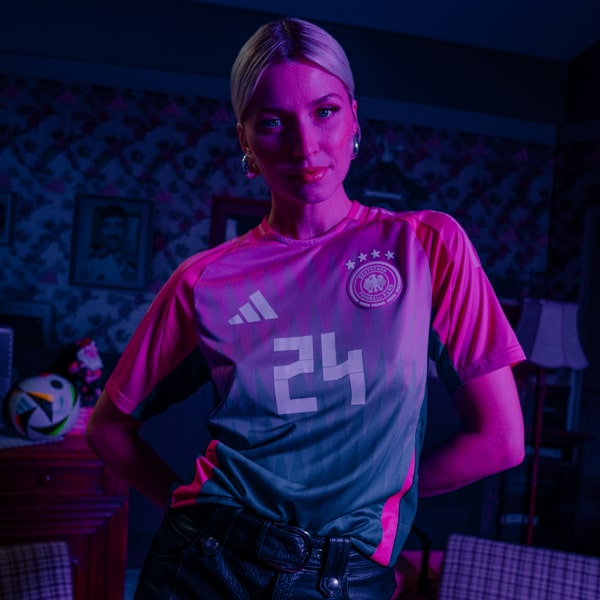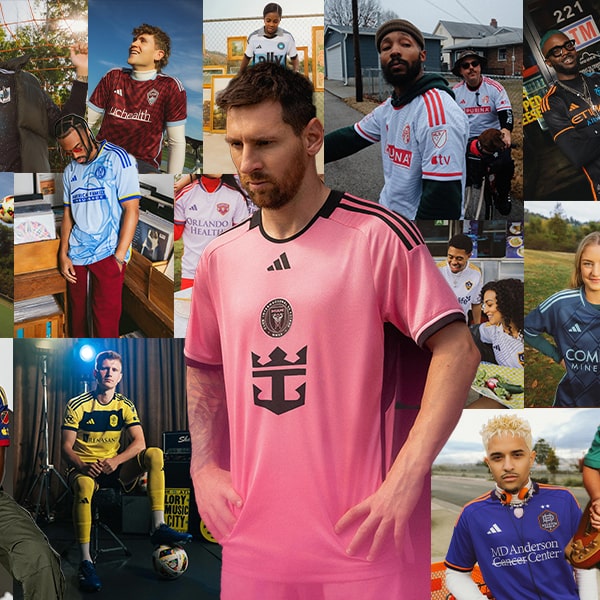Picture yourself in the Nike shorts that France are likely to wear in the men’s gold medal match against Spain today like we are. Ditto Japan’s Y-3 style and Guinea’s PUMA pair.
The 2024 Olympics in Paris, France is breaking viewership records and football is at the forefront. Viewership of the games is up 79% compared to the 2021 Olympics in Tokyo, Japan and NBC reported that the women’s semi-final between the United States and Germany was the highest rated Olympic football match — men's or women's — in over a decade. While many fans obsess over football jerseys from current and previous Olympic competitions, soccer shorts are quickly becoming an equally important cultural phenomenon. And some of the best pairs are on display this Olympics. Look no further than the men’s match up between France and Guinea.
By definition, football shorts are performance sportswear, typically engineered to be moisture-wicking, lightweight, and functional. The world’s top footballers are often given uniforms designed to their exact measurements and preferences. For instance, Cristiano Ronaldo is known to rock “Speedo-like” short shorts and Lionel Messi prefers his shorts to cover his knees. But the average pair of football shorts that the everyday shopper might buy typically includes a boxier fit, an inseam between four and seven inches, and an elastic and/or drawstring waistband.
While consumers cannot buy Olympic football uniforms, sportswear industry executives are keenly aware of the impact that the visibility of the Games has on business. For instance, on Wednesday, adidas CEO Bjorn Gulden told journalists that growth in sales of soccer footwear and apparel led to a 6% rise in apparel sales for the company. “Regarding the Olympics, though the Games have no direct impact commercially, the company sees the event as a positive opportunity to showcase the brand and indirectly drive demand,” reported Linda Pasquini for Reuters.
Today, football shorts are being worn by tastemakers off the pitch: from influencers like Mikayla Vallati to musicians like Blood Orange. But how did the humble football short become a legitimate fashion statement? And is this Olympics a chance for football shorts to finally shine through?
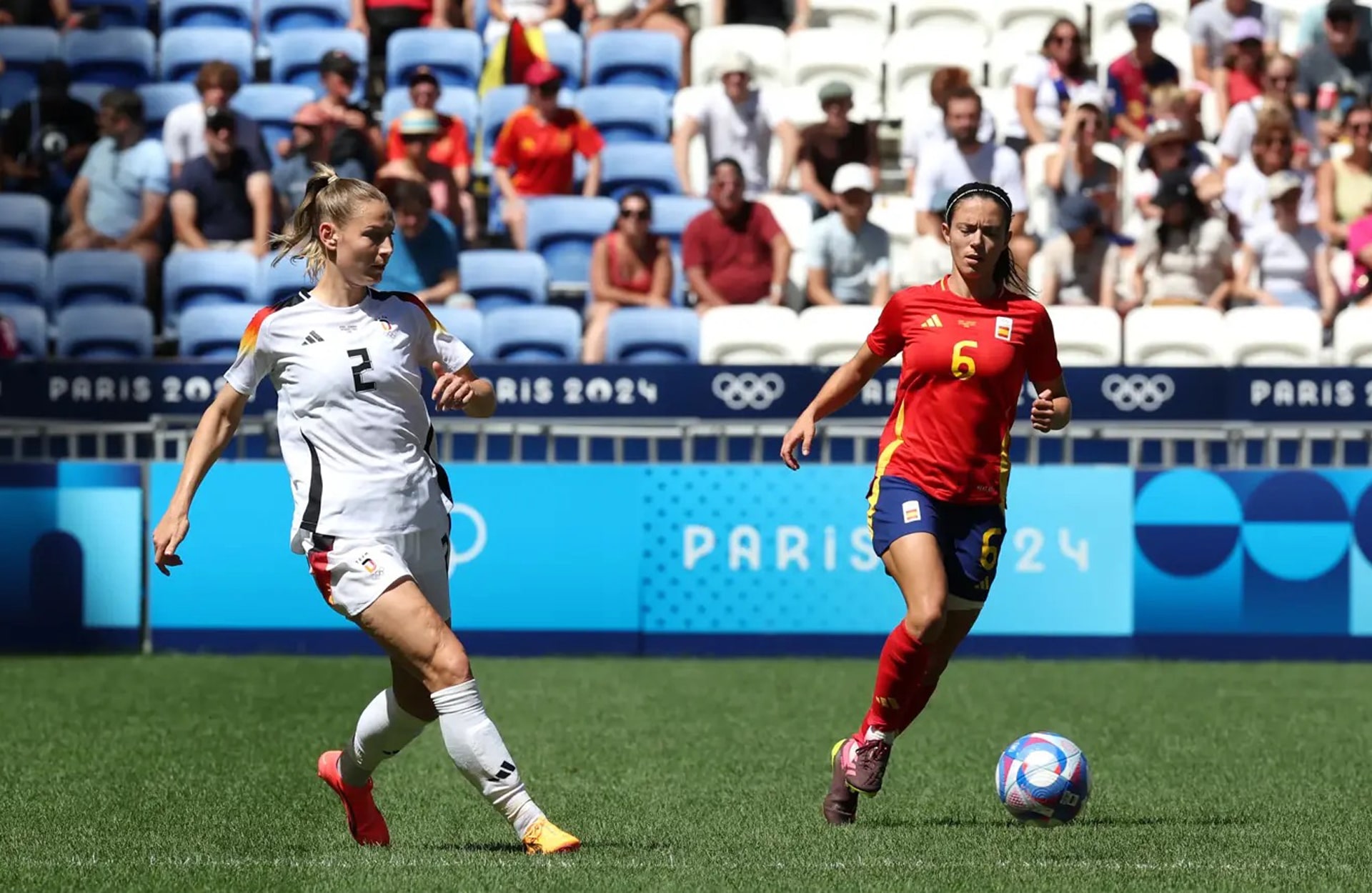
HOW SOCCER SHORTS BECAME A CULTURAL PHENOMENON
According to Transparency Market Research, the football merchandise industry—including jerseys, shoes, and yes, shorts—is worth roughly $10.9 billion (approximately £8.48 billion.) And between 2024 and 2034, the sector is estimated to grow at a rate of 5.8% to an astounding $20.3 billion (roughly £15.79 billion.)
Sports retail industry analyst Matt Powell, tells me that while jersey and footwear sales are often highlighted in such market reports, football shorts play an increasingly significant role in the sector. “What we're seeing is people wearing performance apparel as street wear,” says Powell, pointing to products like Nike’s Tempo short, a favourite among women runners and footballers.
He also suggests that footwear trends could be boosting football short sales. “For instance in footwear, adidas has two hot styles: the Samba and the Gazelle, both of which were originally indoor turf football shoes. And now they're street wear,” Powell explains. “There may be some lift around the consumer knowing that those are foootball shoes, and now they're going to wear football shorts too.”
During London Fashion week in January 2020, designer Wales Bonner first introduced a highly-influential Samba collaboration and she has also released football-style shorts in tandem via following drops. Sales of Samba’s and Gazelle’s have since spiked and the Samba won Footwear News’ 2023 “Shoe of the Year” award. At the beginning of 2023, adidas reportedly sold a couple of hundred thousand pairs of soccer-inspired “terrace shoes” like the Samba and the Gazelle each month. Now, adidas sells millions of pairs a month and analysts expect that terrace shoes will drive 1.5 billion euros (£1.29 billion) of sales this year— around 7% of adidas’ overall revenue.
Charlotte Harris, Senior Apparel Design Manager at Nike echoes Powell’s sentiment. “Football has a global impact and has been influencing fashion and culture season on season,” she says. “Jerseys have always been the focal point but there’s now a shift focusing on bringing energy to the shorts. This gives an opportunity for consumers to wear the full look or have options for styling and supporting your favourite teams.”
Lucas Capozzi-Shanks, founder of scenes.ny, a soccer-inspired performance wear brand suggests that soccer shorts are increasingly popular because they can be introduced more seamlessly into people’s everyday wardrobes. “I have a little bit of kit fatigue. It's just a lot. Every day there's not only just one, but multiple kit releases: first, second, third, special edition, fourth guest designer collaboration. It's just a little breathless and all the focus is on the kits,” says Capozzi-Shanks. “And the shorts are really good, too. They're just as important, if not a more wearable component to the kit. I think shorts translate better into life than kits sometimes do.”
WHAT MAKES A GREAT SOCCER SHORT
To better understand what it takes to design a top soccer short specifically, I emailed Harris. She told me that material choice, graphic details, and fit can make or break a short style.
The fabric “needs to have high stretch to move with the athlete,” she explains. “The fit needs to be crafted and the graphics need to pop otherwise the short won’t have a point of view.”
Harris adds that within the women’s game, many players express their own tastes and preferences. “There’s a huge variety in the fit of women’s football shorts that makes it an exciting styling exercise. Some like to roll and have short shorts and others like to keep a boxy longer look. It’s all preference for the athletes which influences the style and culture of the sport.” And female footballers from the Lionesses to National Women’s Soccer League, players are pushing for an end to see-through and easily-stained white shorts.
Last year, Nike Football's global design director Lee Murphy, told the Daily Telegraph that after players like Beth Mead raised concerns, his team made “a conscious effort to move into dark shorts across all teams, even when there were kit clashes.”
On the consumer side, Powell says that shoppers appear interested in a wide range of football shorts, across silhouettes and materials. “It runs the gamut. It's not just one material or one silhouette that's driving the trend. The point is that it's authentic, performance apparel,” says Powell. “People don't just want to dress athleisure now. Shoppers are really going beyond the leisure side to wearing performance-specific products on the street and I think the football shorts trend is part of that whole phenomenon.”
THE BEST OLYMPIC SHORTS
When all of these design choices come together successfully, shorts often become the best part of Olympic football kits. Experts say this may be because of how the century-old tournament regulates uniforms.
During the Olympics, the 16 men’s and women’s teams wear uniforms that comply with the Olympic Committee’s strict regulations. The Olympic guidelines dictate the maximum size of the numbers, names, and national flags. As a result of these rules, Olympic soccer jerseys are often more streamlined than their Euro and World Cup counterparts. And they are dramatically more subtle than heavily branded jerseys seen in the world’s most high-profile leagues. The shorts face fewer specifications, and this dynamic can inadvertently encourage designers to express their creativity through shorts, rather than through the jerseys.
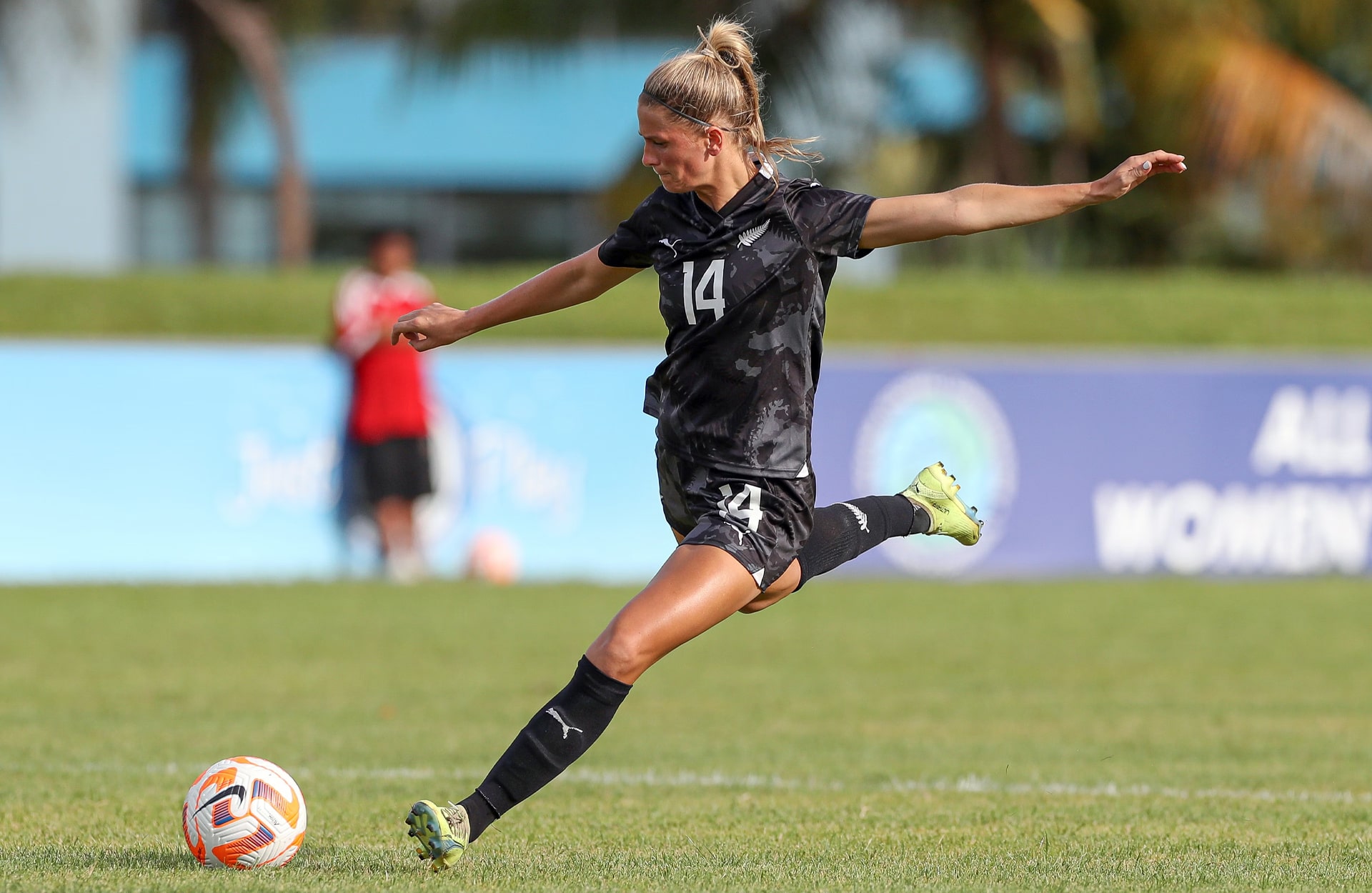
For instance, Argentina had to make significant changes to its World Cup jersey in order to comply—but it did not need to make significant changes to its shorts. Argentina’s Olympic jersey has no stripes on the shoulders, a smaller adidas logo, a different crest, and no front authentic licence patch. And because Argentina’s jersey was more plain, Argentina’s shorts finally got a chance to stand out at the Olympics.
From a design perspective, simpler jerseys mean that viewers can spend more time appreciating the detailing, fit, and graphics of the shorts. Take, for instance, Guinea’s yellow away shorts designed by PUMA. Guinea’s typical jerseys include eye-catching stripes, which were stripped away for the Olympics. While Guinea’s simple red Olympic jersey is good, the team’s yellow shorts with black detailing and retro numbering are great, believes Robbie Liang, co-founder of fullkit, a project which produces football kits for artists. “It's very well colorblocked,” Liang explains. “When you're looking at the pitch, and you see Guinea's full kit, it looks really nice.”
Liang also points to the shorts worn by the men and women of France and the United States, which were designed by Nike, as shorts standouts. “I think the Nike kits recently did a really good job in general,” he says. “But zooming in on the short itself, I think it's super wearable. There's a nice trim at the bottom and the colours accent each other nicely. Like, I could see myself wearing them on a regular day to day and it could pass as not performance wear.”
One way Nike has managed to get ahead in the football short game is to secure kit supply contracts with some of the most influential national football associations in the world. For example, Nike recently signed a new deal with France reportedly worth €100 million (£84.28 million) per year and even a deal with Germany, home of main competitor adidas. These major contracts give the American brand larger market share, and more opportunities to fine-tune their technical and decorative design details.
Another Nike short, worn by Nigeria’s womens footballers has also caught fans’ attention with a similarly neat trim detail but with uniquely bold block numbers that make the Super Falcons stand out. “Every tournament Nigeria has amazing overall kits, but I like Nigeria’s shorts, in particular, with the trim,” says Liang. He suggests that framing the end of the short with a bold trim draws the eye to see the complete shape of the short, rather than glazing over them. As Harris explains, a great soccer short has a point of view. By making intentional design choices with the font style and colours, Nike managed to create a beautiful short that authentically communicates Nigeria’s aesthetic perspective through retro typography that likely references the kit worn by Nigeria’s legendary 1996 men’s team.
Other brands such as adidas with Y-3, and even Asics are knocking on Nike’s door when it comes to football short design. Few kits compete with Argentina’s sky-blue and white uniform designed by adidas. But while Argentina's iconic jersey can often overshadow its simple white shorts, this year, Argentina's U-23 side is sporting a white short with striking side details that seamlessly accentuate the Argentinian jersey’s lines. “Argentina had probably the best shorts with those big, thick, baby blue stripes, and one of them flows into the jersey. I think [adidas] worked the shorts in really well,” argues Capozzi-Shanks.
Then, of course, there are Japan’s boundary-pushing shorts designed by iconic japanese fashion designer, Yohji Yamoato through his Y-3 label. The result of Japan Football Association’s first collaboration with Y-3 is an unapologetic and dynamic design that manages to make a fiery graphic seem like a natural soccer short design. “I'm usually a harsh critic whenever those hype collabs happen. But I think the Y-3 Japan shorts are done really nicely,” says Liang. “That type of print can be hard to pull off. There's a lot of clubs that have tried to do it recently. But Japan did it in a nice subtle way.” In this way, a soccer short can offer fans a more versatile, familiar, and timeless way to inject even the most audacious football fashion into their attire.
These iconic shorts could not come at a better time. While football jerseys have long been appreciated, it seems like soccer shorts are currently having a cultural moment. The shorts are the best part of the 2024 Olympic football kits because the jerseys are forced to be more simple, and as a result, designers are spending more attention to the details of the shorts. Shoppers are paying attention as well.
